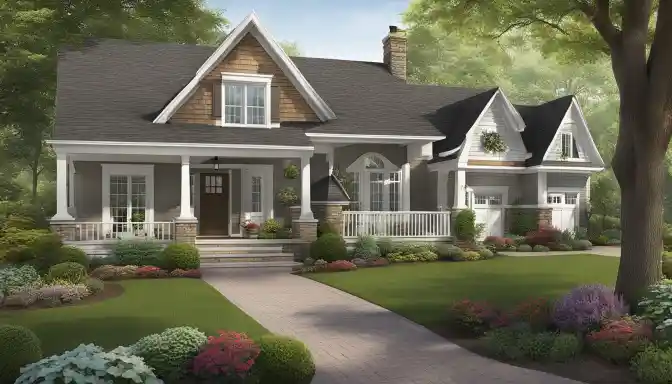Stepping into the world of homeownership is an exhilarating stride towards your future. However, as first-time homeowners, the path is often strewn with potential pitfalls. To steer clear of common new homeowner mistakes and the dreaded home buyer’s remorse, one must tread with knowledge and care. A happy home doesn’t just spring up; it’s built upon well-considered decisions, avoiding real estate mistakes and property investment mistakes that could upset your vision of domestic bliss. Glean first-time home buyer advice from those who’ve navigated these waters before, and equip yourself to sidestep home buying regrets through strategic, informed choices.
Key Takeaways
- Renovate with restraint, respecting the home’s unique characteristics and natural flow.
- Set aside an extra 20% in your budget for unforeseen home repair and renovation costs.
- Take your time to live in the space; haste often leads to costly home buying mistakes.
- Seek out expert advice when torn between options; it’s invaluable for property investment success.
- Home buying regrets are preventable; exercise patience and due diligence before major decisions.
Avoiding Rushed Renovation Regrets
Embarking on the journey of home renovation, you might be inclined to dive right into the thick of DIY home projects. However, the wisest first step is assessing what you’re working with. Mike Holmes, a respected figure in the field of home repairs, recommends starting each project by thoroughly evaluating the current state of your residence.
Evaluating Existing Conditions
Understanding the spectrum of home renovation errors begins with a solid assessment of your property’s present condition. It’s imperative to not only look at aesthetic aspects but also the underlying systems that keep your home functioning. This involves examining the plumbing, electrical work, and structural integrity before planning your modifications. Property maintenance ensures a strong foundation for any upcoming DIY endeavors.
Creating a Comprehensive Blueprint
Once you’ve surveyed your property, the next step is detailed home improvement planning. Envision the end result: your ideal home space utilization, areas that need extra attention, and how to synergize new features with the existing layout. Developing a comprehensive blueprint is not only about the physical design but also about understanding mortgage terms and home repair budgeting to secure your financial footing.
Assessing Long-Term Impact and Functionality
Every hammer and nail should be a step towards enhancing your home’s long-term functionality. Consider the compatibility of upgrades with your lifestyle and daily needs. It’s not just about beauty; it’s about creating a living space that serves you efficiently over time. Reflect on the potential home ownership challenges that could arise from your intended renovations and how they may influence future marketability or property value.

Below is a breakdown of essential considerations for your renovation project:
| Project Phase | Considerations | Expected Outcome |
|---|---|---|
| Initial Evaluation | Structural integrity, electrical and plumbing systems | A clear understanding of the scope of work and necessary repairs |
| Budgeting | Material costs, labor, permits, contingency funds | A realistic financial plan to prevent overspending |
| Design and Planning | Space functionality, aesthetics, compatibility with existing features | A detailed blueprint aligning with your vision and lifestyle |
| Long-term Considerations | Property value, market trends, personal comfort | Renovations that add value and enhance daily living |
By meticulously considering each of these facets, you can avoid common pitfalls that plague many homeowners. Remember, successful home improvement is more than a weekend project; it’s a strategic endeavor that, when executed with care, heightens your enjoyment of your home and protects your investment.
Navigating Home Insurance and Warranties
As you embark on the journey of home ownership, you will find that adeptly managing the complexities of home insurance and warranties can significantly enhance your peace of mind. In this section, we’ll delve into the critical components of homeowner insurance coverage, the intricacies of selecting suitable home warranties, and the importance of establishing a dedicated budget for emergency home repairs. By equipping yourself with the knowledge to navigate these facets effectively, you can protect your property investment and maintain financial stability. Let’s explore the best strategies to manage these vital aspects of home ownership.
Understanding Homeowner Insurance Coverage
Your homeowner insurance policy is the first line of defense against potential calamities. The right homeowner insurance coverage should mirror the unique aspects of your lifestyle and property needs. Regular reviews and professional advice can ensure that your policy adapts to changes in property value assessments or home utility management. It’s not just about covering the basics; it’s about understanding the nuances of what’s protected against landscaping mistakes or other liabilities. By making an informed decision, you can tailor your insurance to grant you optimal protection, keeping home insurance premium costs and the value of your investment in balance.
Selecting and Managing Home Warranties
A well-chosen home warranty can serve as a complement to your home insurance, offering coverage for the repair and replacement of appliances and home systems that fail due to normal wear and tear. When opting for a home warranty, inspect the fine print to comprehend the extent of coverage and any potential exclusions. Prioritizing warranties that align with the specific requirements of your home’s appliances and systems can help in mortgage management by averting the need for unexpected out-of-pocket expenses. Just as with insurance, staying proactive and conducting periodic assessments of your home warranty plan is essential for ongoing protection.
Home Repair Budgeting and Emergency Expenses
Part of managing home expenses wisely includes preparing for the unexpected. Establishing a fund for emergency home repairs ensures that a sudden necessity for a crucial fix doesn’t upend your financial stability. Allocating resources to this fund enables you to address immediate repair needs without compromising other aspects of home utility management or accruing debt. Equally important is being astute in utility bill management, selecting energy-efficient options where possible, and being keenly aware of how your property’s location and characteristics influence maintenance costs. Meticulous financial planning in these areas can ultimately save you more than just money; it can save you from needless worry.
Navigating Home Insurance and Warranties
What are some common new homeowner mistakes to avoid?
First-time homeowners often make crucial mistakes such as neglecting a thorough property inspection, underestimating property investment costs, ignoring real estate market trends, and failing to budget for ongoing property maintenance. Avoid letting emotions drive your decisions, forgetting to research the neighborhood comprehensively, and overlooking the long-term financial commitment of homeownership.
How can I prevent home buying regrets and buyer’s remorse?
To prevent home buying regrets, ensure that you are well-informed about the market, fully assess your long-term financial capabilities, and have a clear understanding of your needs versus wants. Get professional inspections done, and consider first-time home buyer advice seriously. Don’t rush into decisions and make sure you can comfortably manage the associated costs.
What first-time home buyer advice is crucial for avoiding common pitfalls?
First-time home buyers should prioritize getting pre-approved for a mortgage, understanding all the terms and conditions of their home loan, investing time into neighborhood research, and factoring in all the costs of home ownership, including property taxes and maintenance. Planting roots in a community involves not only purchasing a house but also investing in the surrounding community.
Why is it important to evaluate existing conditions before starting DIY home projects?
Evaluating existing conditions is essential to ensure that improvements are necessary and will be beneficial in the long term. It helps you understand the current state of your property, identify any urgent maintenance needs, and plan renovations that enhance your home’s value and functionality. Overlooking this step could lead to unnecessary or inappropriate alterations.
How can I create a comprehensive blueprint for home improvement planning?
Begin by identifying your objectives for the space, taking into consideration factors like home space utilization and property maintenance. Engage experts as needed to avoid renovation errors and consult with contractors to understand the feasibility and required permits. A comprehensive blueprint should include detailed project scopes, estimated timelines, and budgeting that factors in extra costs.
What should be considered when assessing the long-term impact and functionality of home renovations?
When assessing renovations, consider the quality of materials, workmanship, and how the changes will affect your property’s overall flow and function. Think about potential increases in property value, and how modifications might affect your living comfort and energy efficiency. It’s important to recognize any changes that could affect your mortgage or insurance terms.
Why is understanding homeowner insurance coverage important?
Understanding homeowner insurance coverage is fundamental in protecting your investment from unexpected damages and financial loss. Comprehensive knowledge helps you select the right level of coverage for your property and possessions, ensuring that you’re appropriately covered for disasters, theft, and accidents, without paying for unnecessary additions.
How should I select and manage home warranties?
When selecting home warranties, assess the reliability of appliances and systems in your home, and choose a warranty that offers suitable coverage for their repair or replacement. Read the fine print carefully and understand the terms, conditions, and claims process. Regularly reviewing your warranty can help manage costs and keep your home running smoothly.
What is the best approach to home repair budgeting and planning for emergency expenses?
The best approach includes setting aside funds specifically for home repairs and emergencies, ideally 1-3% of your home’s value annually. Create a home maintenance checklist to track regular upkeep and anticipate potential future expenses. Factor in your area’s common issues, like extreme weather susceptibilities, and update your budget as your home ages or you make significant improvements.
Source Links
- https://www.linkedin.com/pulse/diy-survival-guide-what-know-before-you-renovate-your-home
- https://www.architecturaldigest.com/story/home-renovation-mistakes-new-homeowners-make
- https://www.fool.com/the-ascent/mortgages/articles/cant-afford-to-buy-a-house-where-you-live-here-are-dave-ramseys-tips-to-survive-a-competitive-housing-market/






